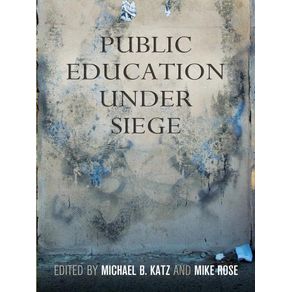Proponents of education reform are committed to the idea that all children should receive a quality education, and that all of them have a capacity to learn and grow, whatever their ethnicity or economic circumstances. But though recent years have seen numerous reform efforts, the resources available to children in different municipalities still vary enormously, and despite landmark cases of the civil rights movement and ongoing pushes to enact diverse and inclusive curricula, racial and ethnic segregation remain commonplace. Public Education Under Siege examines why public schools are in such difficult straits, why the reigning ideology of school reform is ineffective, and what can be done about it.
Public Education Under Siege argues for an alternative to the test-driven, market-oriented core of the current reform agenda. Chapters from education policy experts and practitioners critically examine the overreliance on high-stakes testing, which narrows the content of education and frustrates creative teachers, and consider how to restore a more civic-centered vision of education in place of present dependence on questionable economistic models. These short, jargon-free essays cover public policy, teacher unions, economic inequality, race, language diversity, parent involvement, and leadership, collectively providing an overview of the present system and its limitations as well as a vision for the fulfillment of a democratic, egalitarian system of public education.

